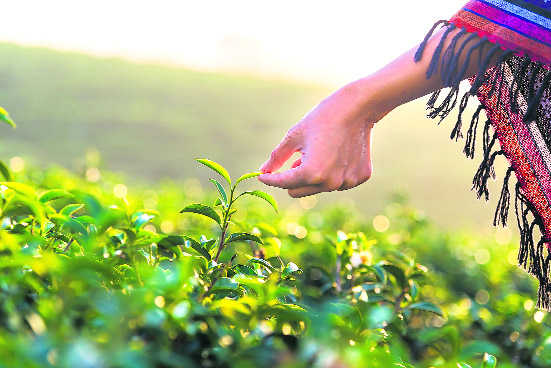
Sustainable agricultural growth is the need of the hour. Many farmers in Punjab have realised that the chemical-intensive, water-guzzler paddy is no longer sustainable. Some of them have shifted towards organic farming to avert the impending crisis. As a result, organic farmers' markets or ‘kisan haats’ have been set up in several parts of the state for the direct sale of organic products.
The organic movement is spreading mainly because of strong civil society. The government agencies had been dormant until recently. They have woken up only after the spread of organic farming by efforts of the civil society and individuals. The recently held consultation on organic farming by Punjab State Farmers’ Commission has been the first major step in the right direction.
The erroneous approach towards food security has been a major roadblock for the growth of the organic farming. Overdependence on wheat and paddy cycles and its agro-chemical intensive agriculture for national food security is not good for the sustainable agriculture. This approach needs to be amended immediately as the existing model is not only unhealthy, but also damaging agro-ecology of the Green Revolution belt. It is high time that Punjab should dump this approach of food security and save itself from impending devastation. It should start looking for sustainable alternatives for food security in millets and other crops. Few steps can transform the state's chemical-based, water-intensive cultivation into ecological agriculture.
First of all, the state should have organic farming board to spearhead the sustainable agriculture. The board should promote and establish organic farming on a large scale by fixing targets on an annual basis. It should also draft an organic farming policy for the state with wider consultations and after studying pros-and-cons of policy frameworks elsewhere. It should monitor the implementation of specific policy measures besides providing production-end support systems for the organic farming such as training, capacity building and extending support. This should also cover community-level input supply systems, including supporting new enterprises at the village-level for bio-inputs.
Funds for this purpose can be leveraged from the ‘Rashtriya Krishi Vikas Yojana', 'Prampragat Krishi Vikas Yojna', National Horticulture Mission, National Programme on Organic Farming (NPOF), the Mahatma Gandhi National Rural Employment Guarantee Act, the National Rural Livelihoods Mission (NRLM) and the Mahila Kisan Sashaktikaran Pariyojana (MKSP) as well as state-level financial allocations.
To provide knowledge and knowhow at grassroots, the government should adopt a participatory mode. In this regard, the organic model farms should be established in all blocks of Punjab. Experienced organic farmers, who have been doing organic farming for 5-7 years, would lead these farms. Preference would be given to the farmers who are into 100 per cent organic farming. These master organic farmers can also provide training on organic farming techniques to the other farmers.
All Krishi Vigyan Kendras (KVKs) should be roped in to promote organic farming. Each KVK should have an organic farming advisory committee comprising practising organic farmers of that district.
Growing food laced with pesticides is not the right approach towards the food security. If our agriculture is poisonous, our food cannot be free from toxins, a cause of unhealthy life. Punjab is facing severe health issues and contamination of its ecosystem. The organic farming is the right solution.
— The writer is Executive Director, Kheti Virasat Mission, Jaitu
Number of producers
2.7 million in the world
8,35,000 in India, largest in the world
Area under cultivation
57.8 million hectares in the world
(1.2% of total agricultural land)
1.49 million hectares in India
(0.8% of total agricultural land)
Source: The World of Organic Agriculture Statistics and Emerging Trends 2018
Organic India growth
11.80 lakh tonne certified organic produce in 2016-17
8.53 lakh tonne certified organic produce in 2013-14
38% growth between 2013-14 and 2016-17
Source: Lok Sabha
Clusters
States No of Area No of clusters (in ha) beneficiaries
Punjab 250 5000 12500
Haryana 20 400 1000
Himachal Pradesh 210 4200 10500
Jammu & Kashmir 28 560 1400
Uttarakhand 585 11700 29250
Delhi 500 10000 25000
Source: Lok Sabha
Exports
Year Exports Exports Exports (in MT) (in Rs crore) (in $ million)
2016-17 309767 2478.17 370
2015-16 263687 1975.87 298
2014-15 285663 2099.16 327
Source: APEDA



























